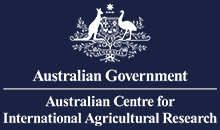Raj Kumar G.C, Program Director, iDE Nepal
Rabindra Karki, Program Engineer, iDE Nepal
Gun Magar, Senior M and E Officer, iDE Nepal

Figure 1 Stakeholder meeting at Simrik Hotel , Lahan
Stakeholder inception meeting of Saptari was conducted on March 16, 2016 at Simrik Hotel Lahan. Altogether 36 participants attended this meeting. Participants were from International Water Management Institute (IWMI), International Development Enterprises (iDE), Department of Irrigation (DoI), Ground Water Resources Development Board (GWRDB), District Agriculture Development Office (DADO), District Farmer Group Association (DFGA), Marketing Planning Committees, Agriculture Service Centers, Agro-vets, Farmer group’s chairpersons and Landlords.
The program started with a welcome speech by Mr. Indra Dev Chaudhary, Chairperson of DFGA. He appreciated the project approach, expressed his willingness to work with the project and committed to make it a great success with dedicated effort at the farmers group level as well as at the organization.
Mr. Raj Kumar GC, WRM-WRM Director of iDE Nepal gave the overall objective of the stakeholder inception meeting. He said that the main objective of the meeting is to inform the stakeholders about the project, update the progress, and develop a common understanding of the project and seek ways for partnership and collaboration among the stakeholders. He highlighted the capacity development of tenants and marginal farmers groups through a systematic process of training including social mobilsation, water management, agriculture and integrated pest management. These trainings are linked to the farmers needs to the dry season irrigation and will be designed to match charactresitcs of the tenant farmers groups. The key aspect of the project is the dry season irrigation facilities of the farmer groups, use and management of fallow lands, local market linkage and associated benefits for the tenants and smallholders.
Dr. Romulus Okwany, Researcher, from IWMI presented the overview of the project. He emphasized on resulting benefits from tenant landlord engagement. With this particular approach, not only the marginal farmers will benefit from improved technological use and enhanced production but also the intervention will help the landlords to benefit from monetary gain through rents from unused lands. He further explained the importance of individual practice change, group & institutional practice change, confidence, knowledge and skills change and access to information. Major highlights of his presentation were to work in a collaboration, to learn from each other, to make a difference and to reach the goal and realize the vision of the project.
Rabindra Kumar Karki, Program Engineer of iDE Nepal and Raj Kishor Ray, Program Officer of DSI4MTF presented the overall progress of the project till March 2016. Dipika Das, Project Coordinator of IWMI presented an update on biophysical interventions such as field mapping, monitoring of tube wells and the ponds at the fields.
Stephanie Leder from IWMI focused on the project’s aim to develop participatory gender training for farmer groups in which farmers are sensitized to discuss these gender issues. She further emphasized the need to raise awareness on gender roles and gendered behavior and how this influences the adoption of DSI4MTF interventions and trainings. Further she highlighted a need to increase farmer group interaction through discussions on collective support and increasing the willingness to mitigate the gendered division of labor within the groups. Lastly, she explained about promoting bargaining skills which equip farmers to confidently negotiate with group members and others in management of conflicts.
Guddu Mishra from iDE Nepal outlined how the local SRFSI project iDE are leading could be interlinked with this project. He said agricultural mechanization is also needed to improve water use efficiency and productivity of the land. He explained the potentiality of the promotion of zero tillage technique and other improved agriculture practices being promoted by SRFSI be linking the farmers to the service providers in neighboring districts.
Mr. Surendra Prasad Gupta, Landlord of Khoksar Prabaha also expressed his encouraging words towards the project and progress to date. He committed that his support will continue with more lands available at the vicinity and other supports like bamboo fencing etc. He also expressed his happiness to provide his unused lands for improvement of poor and marginal people.
Mr. Uttam Raj Timilsina delivered his insightful suggestions regarding importance of pond improvements and making use of unused lands for poor and marginal people. He emphasized the scaling of this approach for benefit of other communities within the district and beyond.
Ms. Laxan Kumari Yadav, representative from Rupesh Agro-vet said that she is always ready to help farmers to provide quality seed, improved fertilizers and improved agricultural tools and equipment. She again highlighted the importance of use of these technologies for enhancement of the farmers and their livelihoods.
In the open session of farmers view, Mr. Shiv Kumar Mandal, chairperson of famer group from Koiladi said that ongoing irrigation interventions in the field will be really helpful for them and he suggested to do the similar interventions in other parts of the district. Ms. Janaki Devi Chaudhary, Chairperson of the farmer group of Kanakpatti expressed that their first cultivation in dry and fallow land was really challenging to them. It was hard to determine production yield of the currently cultivated crops cultivated in the virgin land. Finally she thanked the project team for facilitation and help in making it.
The program formally ended with the closing remarks of Mr. Surendra Raj Shrestha, senior divisional hydro-geologist from Ground Water Resources Development Board (GWRDB) Nepal. He highlighted the progress of the project as was encouraging and helpful in generating positive impacts in the tenant and landlord relations thereby improving agriculture production and changing social status of the poor people. He also urged the stakeholders to extend support for the poor and marginal in the future.
Concluding the stakeholder workshop, the event developed a common a platform for all the stakeholders to sit and discuss openly about the project. The project team was exited to receive the commitments of the local stakeholders.





